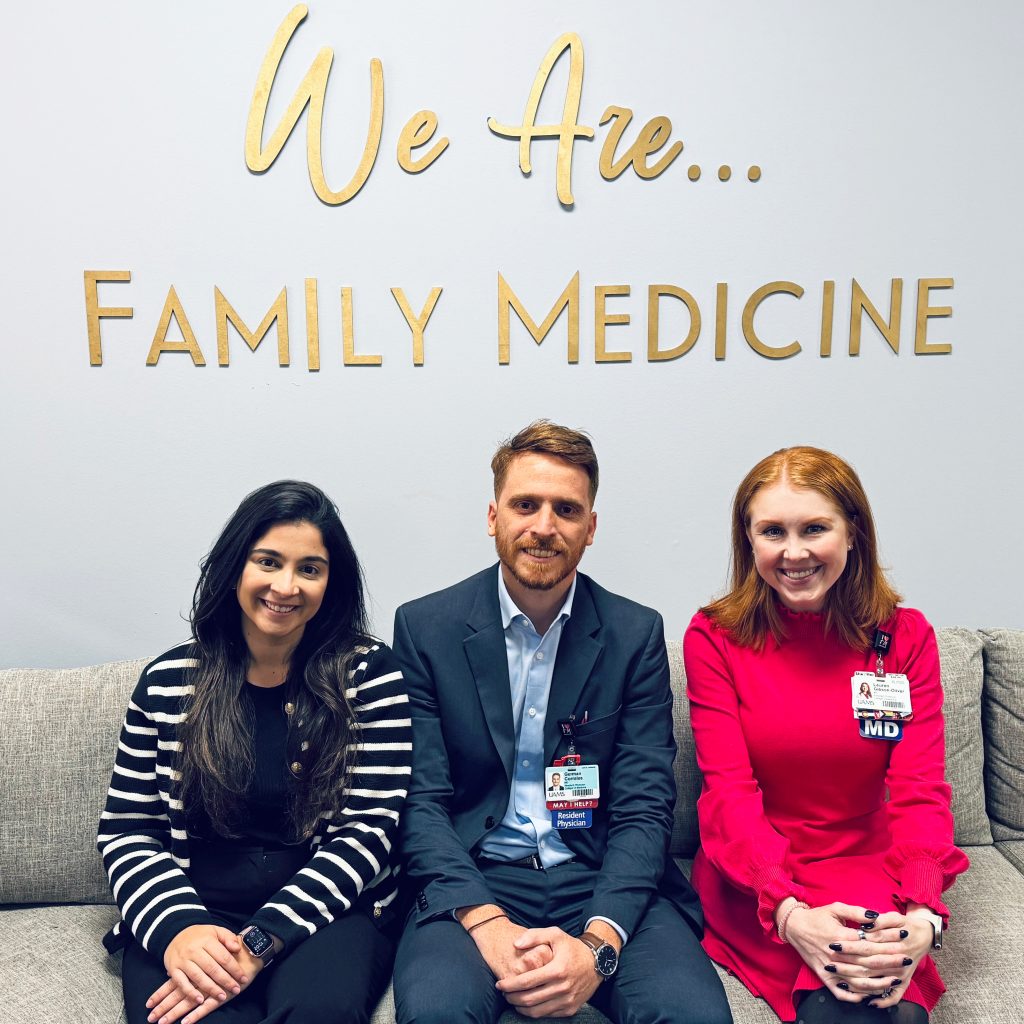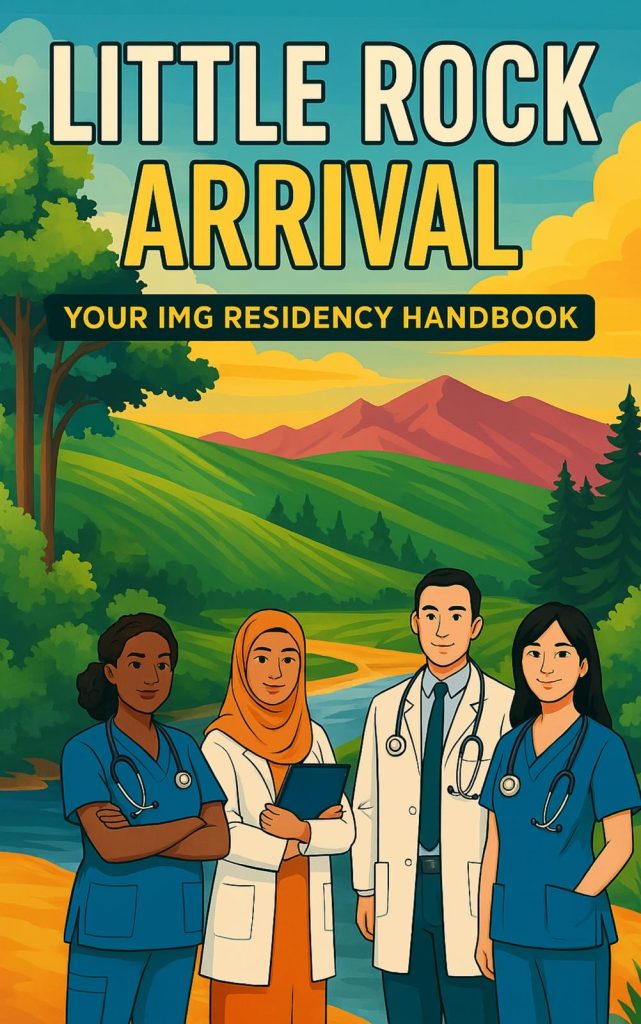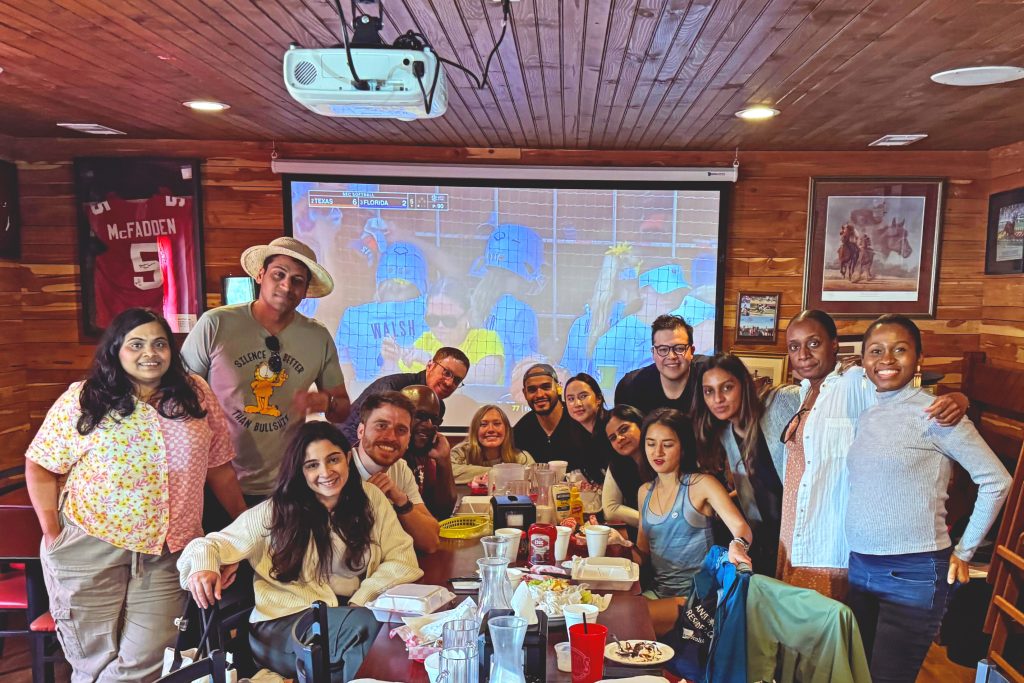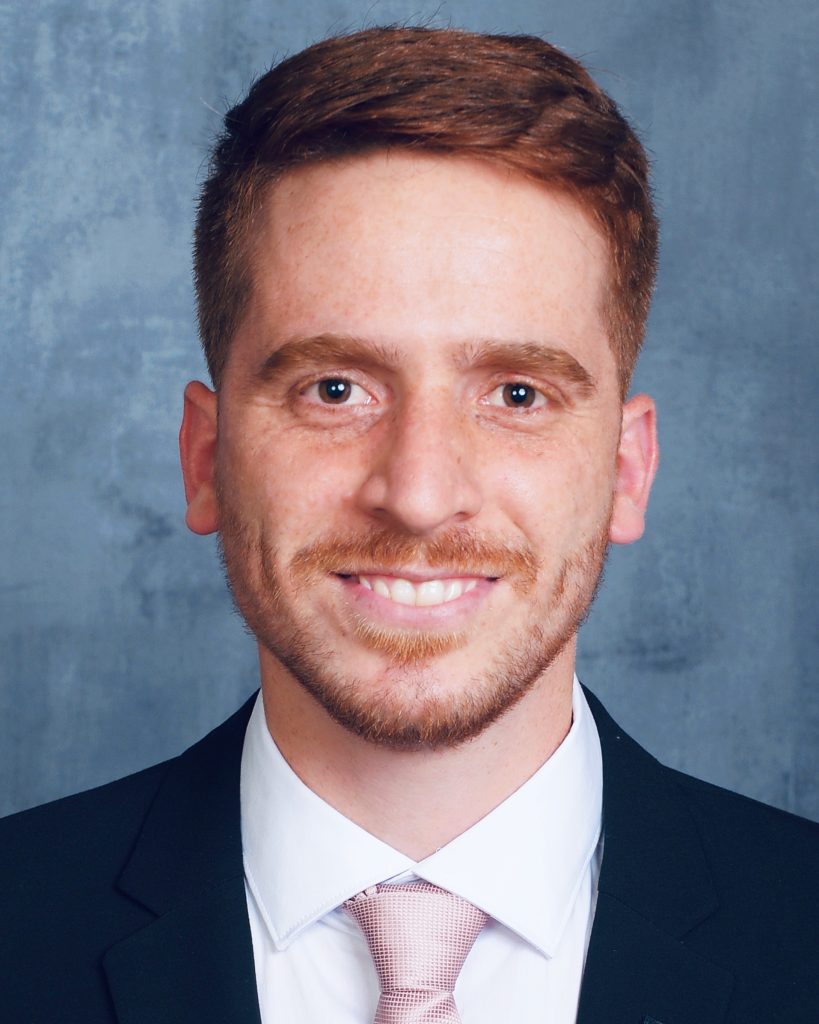Recipient of the 2024 Grant Opportunity for J-1 Physicians: Well-being Projects Supporting Foreign National Physicians
When I moved from Córdoba, Argentina, to the United States to apply for residency, I was filled with excitement and hope. At the time, I was a postdoctoral research fellow at MD Anderson Cancer Center in Houston. But just as I was preparing to take the USMLE Steps, COVID-19 hit. Testing centers shut down, and like many others, I had to delay my Match application by a full year. I stayed on in my research role and, during that extended time, connected with several other international medical graduates (IMGs) going through similar delays. Our shared stories of uncertainty and perseverance helped me feel less alone and more determined to continue forward.
Eventually, I was fortunate to begin my dream family medicine residency at the University of Arkansas for Medical Sciences (UAMS) in Little Rock, Arkansas. Relocating from a large city like Houston to a smaller community was a big adjustment, not only in daily life but also in terms of access to resources that many IMGs often rely on. While I was, and continue to be, grateful for the opportunity to train in a supportive environment like UAMS, I realized that some of the day-to-day challenges I experienced were shared by my other IMG co-residents. Adapting to a new system, handling practical tasks outside of training, and finding a sense of community far from home were common hurdles. Starting residency is difficult in any setting, but it becomes even harder when you are in a new country where things that used to be simple, like renting an apartment, setting up a phone line, or understanding how credit scores work, suddenly feel overwhelming.

These experiences strengthened my commitment to improving residency wellness, leading me to actively seek opportunities to support my peers. Eventually, in addition to becoming chief resident of my program at UAMS, I became the leader of the program-wide resident wellness committee. I drew on my own personal IMG journey to advocate for initiatives promoting mental health and resilience, aiming to create a more supportive and inclusive environment for all residents. My wellness committee team diligently researched and introduced innovative ideas to strengthen the bond among our residents. We worked to reduce the perceived distance between residents and faculty, creating a robust support system. As IMGs ourselves, we understood the hurdles of adjusting to a new culture while managing the demands of medical training. The additional stress we experienced navigating the visa process, overcoming language differences, and establishing a professional network in an unfamiliar environment only fueled our determination to enact meaningful change at UAMS.
That is what inspired us to apply for the 2024 Intealth Well-being Grant Opportunity. When we found out our proposed project, “Empowering IMGs: Fostering Support, Leadership, and Inclusion in Family Medicine,” was one of the five chosen for funding, I partnered with Dr. Tatiana Lino to figure out our next steps. With the mentorship of our program director, Dr. Lauren Gibson-Oliver, we launched an initiative to help incoming international residents feel more informed, connected, and supported at UAMS. We began with a survey to better understand the specific needs of the IMG community within our program. Based on that feedback, we developed a three-part project.

First, we created a printed guidebook that covered a wide range of practical topics. It included information on how to get a driver’s license, apply for a Social Security Number, open a bank account, find housing, understand the U.S. healthcare system, and navigate tools like the electronic medical/health record (EMR/EHR) and call schedules. We also included wellness resources, reminders about visa compliance, and tips for managing cultural adjustments both inside and outside of the hospital.
Second, we filmed a short video featuring IMG residents who shared personal advice, reflections, and encouragement, offering both information and a sense of reassurance. Third, we launched a new leadership position within our residency’s wellness committee, the IMG Champion. This role is elected yearly and is designed to offer IMG residents a formal leadership opportunity and a reliable point of contact for new international trainees to ease the adaptation process.
Later in the year, we hosted an in-person retreat that brought together current and incoming IMG residents. It was a space for connection, storytelling, and community building, and it also marked the official launch of our new support system for IMGs, including the guidebook and the IMG Champion role. One of the most meaningful aspects of the project was seeing how engaged the entire program was. Residents from all backgrounds, not just IMGs, contributed ideas, helped with the planning, and participated in making the project stronger than we could have imagined.
I am pleased to report that UAMS is committed to ensuring that the cultural changes sparked by this project are sustained at the institution for years to come. The guidebook is now being incorporated into the official orientation materials for our program, and the IMG Champion role has been added to our leadership structure so it can be passed down each year. Program leadership has also since initiated a formal “IMG Welcome Track” for incoming interns. These structural changes will help ensure that support for IMGs is not dependent on one-time efforts and will continue even now that our project term has ended.

For other institutions interested in implementing a similar project, I recommend starting with a needs assessment. This step was essential to our process; a simple survey helped us understand what challenges incoming IMGs faced and allowed us to design practical, targeted solutions based on this data. I also recommend involving current IMG residents and program leadership in the project from the beginning. This created a sense of shared ownership and made the work more manageable for us. We also found it helpful to keep the materials easy to update and closely aligned with existing orientation processes. Most importantly, we learned that even small, lower-effort actions—such as creating space for IMG voices and offering peer support—can have a lasting impact when they are consistently and thoughtfully integrated.
I am deeply grateful for the opportunity provided by the Intealth Well-being Grant Opportunity. As an IMG committed to an academic career, receiving this support was meaningful and empowering. This grant validated the importance of our unique experiences as IMGs and gave us a platform to turn ideas into impact. The flexibility of the initiative allowed us to tailor the project to our community’s needs, all while feeling genuinely supported throughout the process. Being trusted with this opportunity sent a powerful message that IMG-led initiatives are valuable, needed, and capable of driving meaningful change at hospitals across the United States.
I would like to thank Intealth for investing in the well-being of foreign national physicians and IMGs. This grant has been a transformative experience for me. I hope more IMGs will have the same chance to lead, grow, and contribute to this initiative in the future.
The Intealth Well-being Grant Opportunity awards grants of up to $5,000 to J-1 physician-led projects supporting the well-being of foreign national physicians at their host institutions. In 2024, Intealth announced the winning projects of its second annual Well-being Grant Opportunity for J-1 Physicians: Well-being Projects Supporting Foreign National Physicians. The grants were awarded to five projects. This entry is about one of those projects. For more information on this initiative and details about this project, click here.

